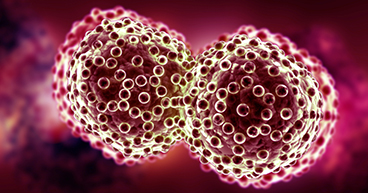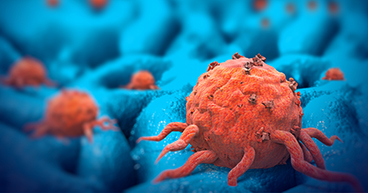


69 Posts

March 8, 2018
Exceptional responders: Why do some cancer drugs work for them and not others?Some cancer patients respond so well to certain treatment when others do not that scientists are researching what makes them unique. Find out what they're learning about so-called exceptional responders, and how that may lead to advancements in cancer treatment.

February 20, 2018
How does cancer do that? Sizing up cells and their shapesWhen it comes to cancer, cell size or shape may be critical in helping to diagnose the type and stage of the disease.

February 8, 2018
How does cancer do that? Cancer cells find ways to resist treatmentDevastating to patients and frustrating for doctors, resistance to treatment is all too common in many types of cancers.

January 30, 2018
Findings raise new concerns about birth control safetyA new study suggests that low-dose estrogen contraceptives have not had the impact doctors expected, and experts are urging women to talk to their doctors about the implications for their breast health, even though the overall risk remains relatively small.

January 23, 2018
Cancer vaccines do exist, but don't expect the impossibleSince the first vaccine for smallpox was developed by English physician Edward Jenner in 1796, vaccines have prevented a variety of devastating maladies and saved millions of lives. The World Health Organization lists 26 available vaccines—for diseases from cholera to yellow fever—and another two dozen are in development for illnesses like malaria and the Zika virus. Not on the list of diseases targeted by current or potential vaccines: cancer. In fact, despite advances in medicine, and in cancer treatment in particular, one unfortunate scientific reality is that a universal vaccine to prevent cancer will likely never be developed.

January 18, 2018
Medical technology from space isn't science fiction anymoreScience fiction storylines that have played out on TV and movie screens have helped to shape some tools and technologies that have become positively commonplace today.
Guidelines
The information contained in this blog is not intended nor implied to be a substitute for professional medical advice. Always seek the advice of your physician or other qualified health provider prior to starting any new treatment or with any questions you may have regarding a medical condition. Nothing contained in the blog is intended to be used for medical diagnosis or treatment of any illness, condition or disease.